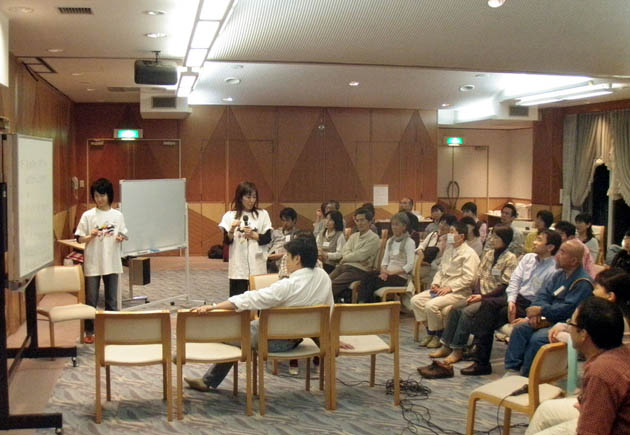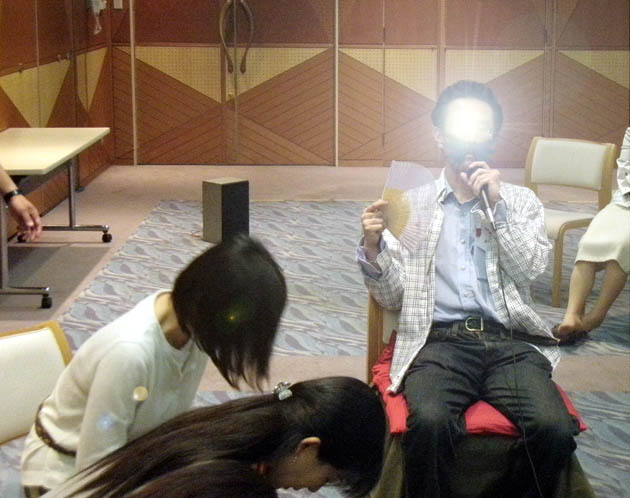
My colleagues and I held a three-day workshop of psychodrama in a small town in south Osaka. I am a music director and a general consultant. About forty people came and thirteen dramas were performed.
A gentleman, who is a boss of an office, has difficulty in organizing staff meetings. During the meeting, his staff are so inactive that he must talk alone without any response. The director asked him to be a protagonist of a play, and selected some participants as antagonists to help him as his staff.
Actually, in the play, the meeting was extraordinary boring. He seemed timid without courage, talking rapidly in low voice without looking at the eyes of the staff. The staff were looking at their own thighs without any expression. He confessed that the play was very similar to the actual situation.

The director asked the protagonist to play the part of a duke in the Samurai era. One of the antagonists goes to tell him, “All the members have come. Would you mind joining the meeting?” Then the drum sounds. When he is entering to the meeting room, another one shouts, “Our Lord is coming!” All the members stands up. The duke sits down and tells the people to take seats. The meeting was excellent. The members were active. The boss was decisive with strong self-confidence. Not only the protagonists but also all the antagonists enjoyed the meeting very much. It was just like a miracle. After the play, they told that this was far better than the original.
Friendly atmosphere between employer and employee, bosses and subordinates, or teachers and students, is very popular in Japan. This sometimes makes a big trouble. I think the role division of labor is necessary to establish the cooperative relationship among people. In the play, using an old style ritual, the director tried to make the role division. As a consequence, not only the boss, but also all the team members, could enjoy the meeting. Like this, the equality is not the sameness.

